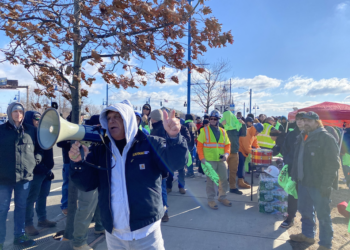Sacred Heart University in Fairfield moved its annual College of Arts & Sciences Conference online at the end of October. This is the fourth year for the conference, in which more than 40 faculty members representing multiple disciplines discussed a variety of subjects that included women”™s rights, voting rights, coping with grief, feminism, social media, the climate, and pharmaceuticals.
 With it being a presidential election year, it was only natural for the right of women to vote along with other women”™s rights to receive special attention among the subjects discussed.
With it being a presidential election year, it was only natural for the right of women to vote along with other women”™s rights to receive special attention among the subjects discussed.
Feminism was explored by Amanda Moras, associate professor and associate dean for success at the College of Arts & Sciences. She noted that the first Women”™s Rights Convention took place in 1851 and that back then white women often compared themselves to slaves, referring to marriage as slavery. However, she said, these women failed to take into consideration how Black women were dealing with achieving women”™s rights and civil rights at the same time.
Teaching grief and loss to students online was covered by professors at the School of Social Work Suzanne Marmo and Patricia Carl-Stannard. They explained that the goal of a course they teach is to raise students”™ awareness about life, loss and transition. The class is split into four sections: identifying types of loss, loss as a result of trauma, loss as a result of illness and assessing the role of spirituality in coping with loss.
They said that because modern-day students are used to blocking out what they don”™t like, online content must be attention grabbing and engaging. They reported that because working toward obtaining a master”™s degree in social work is so emotionally challenging, they had to find a way to engage students with uncomfortable material.
Part of teaching grief and loss in the in-person classroom, they said, is establishing a safe space and ownership of class and they needed to translate that to the online classroom.
So, before the course begins, Marmo and Carl-Stannard ask their students what a safe space in the online classroom means to them and require them to commit to maintaining confidentiality regarding that takes place and what their classmates may say.
They also teach what they call “netiquette,” internet etiquette, and provide peer support networks, which they call peer cafés. This involves students having discussions within their group while the only outsiders with access are Marmo and Carl-Stannard.
An assistant history lecturer, Kelly Marino, spoke about early feminism in Connecticut, starting with the Connecticut Women”™s Suffrage Association in 1869, which voted to disband in 1921. She explained that the organization was successful in achieving some gains but struggled to attain voting rights and, in fact, Connecticut did not vote to ratify the 19th Amendment to the U.S Constitution until after it had already gone into effect. The required 36 states had already voted approval.
In September 1920, Connecticut became the 37th state to ratify the 19th Amendment that declared, “The right of citizens of the United States to vote shall not be denied or abridged by the United States or by any state on account of sex.”
Marino pointed out that in the early 1900s, Connecticut it was mainly conservative, rural Republican, pro-business and resistant to change. She said that many Connecticut residents supported President Woodrow Wilson, who opposed women”™s suffrage and frequently traveled to Lyme.
















